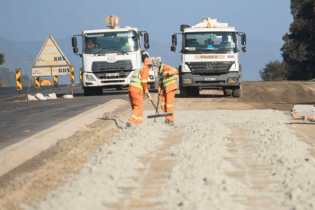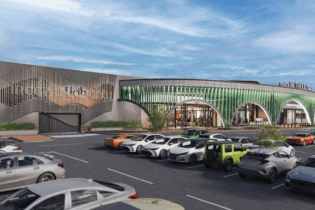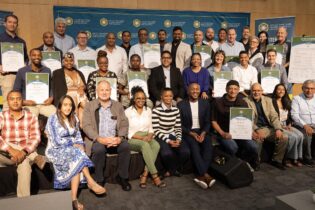The commissioning of stage one of the upgrading and expansion of Tshwane’s Zeekoegat Wastewater Treatment Works is on schedule for completion in November this year, six months ahead of the contract period.
Stage one involves the construction of a new 40 Mℓ/day biological nutrient removal activated sludge (BNRAS) module. The elements comprise additional screens and degritting chambers at the existing inlet works; three primary settling tanks; a 10 000 m³ balancing tank; a 30 000 m³ biological nutrient removal reactor with associated air blowers, diffusers and pipe work; four secondary settling tanks; chlorine contact tank; various small pump stations and sumps; all interconnecting pipework and valves; and upgrading of the bulk electrical and reticulation systems. The tender for the second stage of the project was published several months ago by the Tshwane Municipality and drew responses from more than six contractors, including Concor Civils, part of Murray & Roberts Construction, which is constructing stage one in a joint venture with Power Construction. The incumbent contractor and another contractor were invited to present proposals to the municipality recently but at the time of writing the tender had not yet been awarded.Work on the stressed 30 Mℓ/day plant – located about 20 km north-east of the Pretoria CBD – was split into four stages for budgetary reasons. The remaining three stages of the Zeekoegat works upgrade and expansion comprise the construction of sludge handling facilities, tertiary treatment facilities for 85 Mℓ/day and upgrading of the existing 30 Mℓ/day works to 45 Mℓ/day by eliminating various bottlenecks.
According to the brief given to the consulting engineers, a joint venture comprising Bigen Africa and KV3 (which is now part of the international Worley Parsons Group), the project was planned to ensure that there is an overlap of work on each of the stages. The overall objectives of the four part project are to increase plant capacity from 30 Mℓ/day to 85 Mℓ/day, improve the quality of effluent entering the Roodeplaat Dam to meet more stringent phosphate limits of 0.035 mg/ℓ to better manage the treatment of raw water into potable water, and to upgrade sludge handling capabilities at Zeekoegat to comply with the latest legislation. The completion of the overall project is scheduled for 2015/16.





